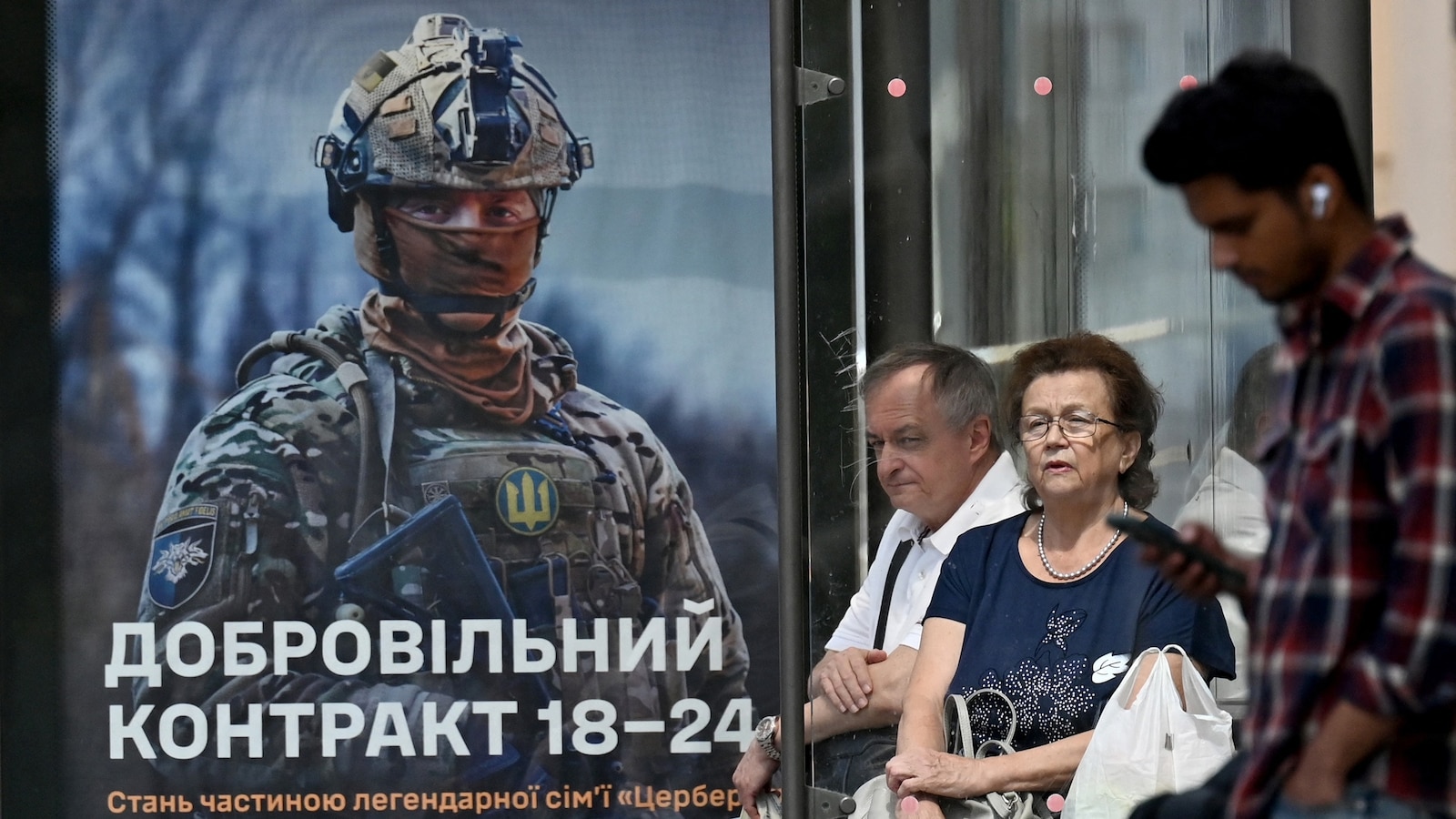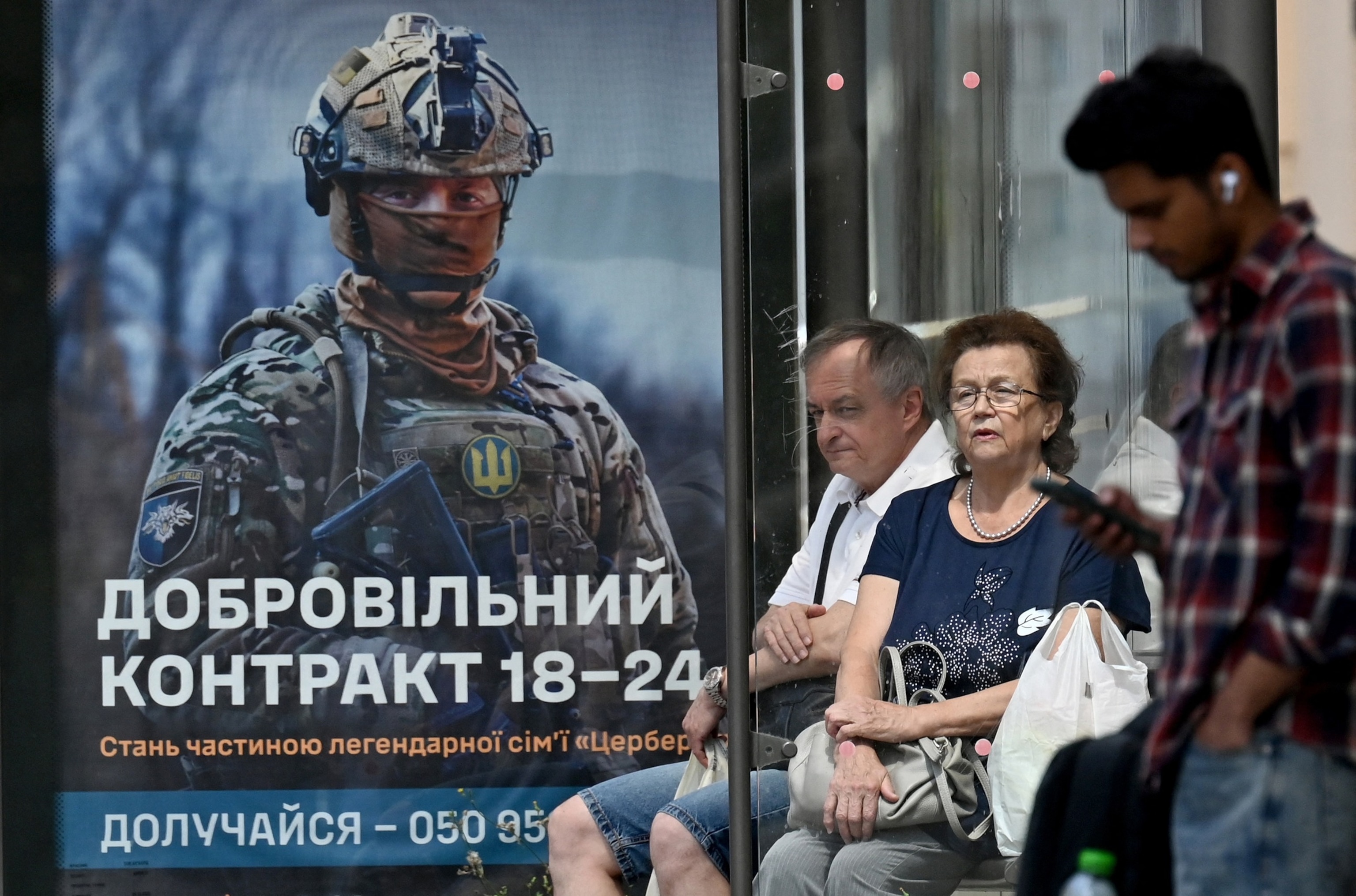Trump envoy Witkoff to head to Russia for ‘last chance’ Ukraine talks

LONDON — President Donald Trump’s special envoy Steve Witkoff is expected to travel to Russia later this week, the president told reporters on Sunday, in a bid to secure an elusive ceasefire deal “where people stop getting killed.”
Witkoff will travel to Moscow on either Wednesday or Thursday, Trump told reporters.
Witkoff heads to Russia amid building frustration in the White House, with six months of diplomacy under Trump having failed to achieve a peace deal — or even a ceasefire — to end Moscow’s full-scale invasion of its neighbor, which began in February 2022.
Last month, Trump issued a 50-day ultimatum to Russian President Vladimir Putin, threatening sanctions and tariffs — including secondary sanctions on top customers for Russian energy exports like China and India — if the Kremlin failed to agree to a ceasefire.
Last week, the president cut the window to 10 days, citing continued Russian drone and missile strikes on Ukraine. That 10-day deadline is set to expire on Friday.
Presidential envoy Steve Witkoff attends a meeting between President Donald Trump and NATO Secretary General Mark Rutte in the Oval Office at the White House on July 14, 2025 in Washington, D.C.
Kevin Dietsch/Getty Images
Kremlin spokesperson Dmitry Peskov told reporters on Monday that Russia will “not rule out the possibility” of Witkoff visiting Moscow later this week.
“We are always happy to see Mr. Witkoff in Moscow and are always happy to have contact,” Peskov said. “We consider these contacts important, meaningful and very useful.”
“The dialogue continues and the United States continues its efforts to mediate in the search for a Ukrainian settlement,” he added. “These efforts are very important, including in the context of the ongoing process of direct Russian-Ukrainian negotiations. Work is continuing, and we remain committed to the idea that a political and diplomatic solution to the Ukrainian problem is, of course, our preferred option.”
Russia’s state-affiliated Tass news agency reported that Peskov said Putin would meet with Ukrainian President Volodymyr Zelenskyy — a meeting Kyiv has repeatedly proposed but been rebuffed by Moscow — once “preparatory work” at the “expert level” was completed.
Ukraine is backing the U.S. demand for an immediate ceasefire, after which negotiations as to a full peace deal can take place.
Zelenskyy posted to Telegram on Monday urging stronger action against Moscow by Kyiv’s Western partners.
“The world has enough power to stop this and protect people,” the president wrote. “We rely on strong decisions from the U.S., Europe and the world regarding secondary sanctions on trade in Russian energy resources, on Moscow’s banking sector.”
Andriy Kovalenko, the head of the Counter-Disinformation Center operating as part of Ukraine’s National Security and Defense Council, suggested in a post to Telegram that Witkoff’s expected visit later this week represents Russia’s “last chance to stop the war.”
“If the visit is not successful, there will be sanctions,” Kovalenko wrote.
But Oleksandr Merezhko, a member of Zelenskyy’s party and the chair of the parliament’s foreign affairs committee, told ABC News he does not expect Trump to impose sanctions on Russia’s biggest fossil fuel customers — China and India — even if Putin again refuses a ceasefire.
“My guess is that Trump might impose some kind of tariffs, which won’t stop China and India from buying Russian oil and gas,” Merezhko said.
“The key problem is how to deny Russia revenues for selling its oil and gas to China and India, who are the biggest buyers,” he added. “On the one hand, Trump doesn’t want to look weak, yet on the other hand, he doesn’t want to spoil relations with China and India by imposing serious sanctions.”
U.S.-Russian relations dipped last week ahead of the looming ceasefire deadline, with Trump engaging in a public spat with Dmitry Medvedev — the former Russian president and prime minister now serving as the deputy chairman of the country’s Security Council.
Medvedev framed Trump’s ultimatum as “a threat and a step towards war. Not between Russia and Ukraine, but with his own country.”

People wait for transportation at a bus stop next to a recruitment advert of the Ukrainian Armed Forces in Kyiv, Ukraine, on August 3, 2025, 2025.
Sergei Supinsky/AFP via Getty Images
Medvedev’s comments prompted Trump to then order two nuclear submarines to move to “appropriate regions,” citing “highly provocative statements” from Medvedev, who has become known as a particularly hawkish voice within Putin’s security establishment.
ABC News’ Joe Simonetti contributed to this report.